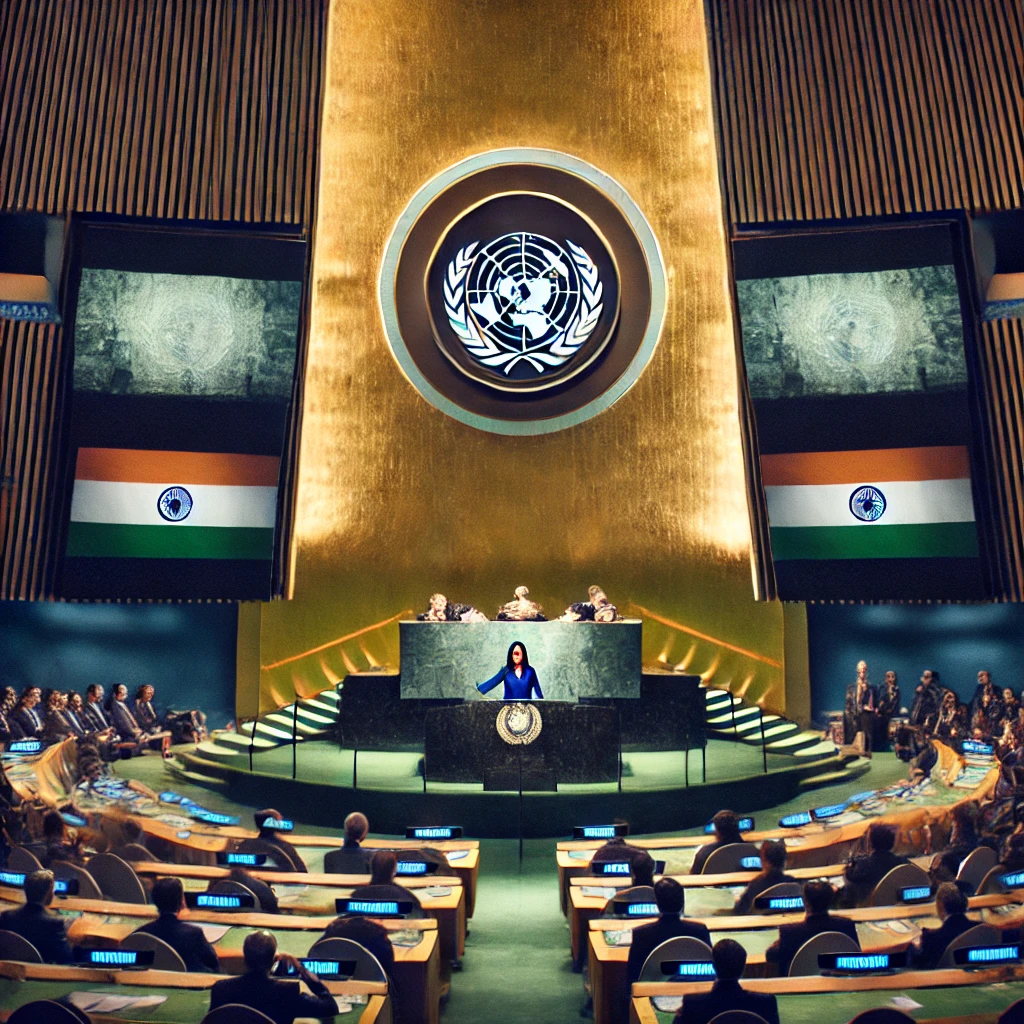The 79th session of the UN General Assembly (UNGA) witnessed a significant moment in India’s diplomatic journey when Indian diplomat Bhavika Mangalanandan delivered a firm and incisive Right to Reply. In her response, she rebuked Pakistan’s consistent rhetoric on Kashmir, which had once again been brought to the global stage by Pakistani Prime Minister Shehbaz Sharif. Mangalanandan’s words resonated globally, reaffirming India’s long-standing stance on the Kashmir issue and putting a spotlight on Pakistan’s own internal contradictions and support for terrorism. This assertive response is being hailed as a crucial step in solidifying India’s position in international diplomacy.
Pakistan’s Kashmir Obsession
For years, Pakistan has repeatedly raised the Kashmir issue at international forums, particularly at the UN, as part of its strategy to globalize the dispute. In his address, Sharif once again emphasized the need for international intervention in Kashmir, framing it as an unresolved issue. However, the global response to Pakistan’s narrative has been dwindling, with many countries now viewing the matter as a bilateral issue between India and Pakistan. The constant focus on Kashmir also appears to distract from other pressing global issues, further undermining Pakistan’s diplomatic credibility.
India’s Resolute Rebuttal
Mangalanandan’s response was a clear reflection of India’s foreign policy, which maintains that Kashmir is an integral part of the country. In her rebuttal, she called out Pakistan’s “hypocrisy,” highlighting its role in nurturing cross-border terrorism while attempting to position itself as a victim on the world stage. She also addressed Pakistan’s internal human rights issues, citing the persecution of minorities. Her speech not only refuted Pakistan’s claims but also placed the spotlight on Pakistan’s questionable global reputation.
A Global Diplomatic Win
India’s strong rebuttal garnered significant international attention, with many praising the clarity and precision of Mangalanandan’s words. The incident underscores India’s growing diplomatic confidence and its ability to challenge adversarial narratives on prominent platforms. This moment comes at a crucial time, as India’s global influence continues to rise, particularly in light of its G20 presidency and strengthening relations with key Western powers. Mangalanandan’s words sent a strong message: India will not allow Pakistan to dominate the narrative on Kashmir or tarnish its image on the global stage.
Pakistan’s Waning Support
Pakistan’s strategy of raising the Kashmir issue at every possible forum is increasingly isolating it from the global community. Major powers like the United States have adopted India’s stance, asserting that the Kashmir issue must be resolved bilaterally. Pakistan’s repeated focus on Kashmir has led to diplomatic fatigue, with many nations perceiving it as an attempt to shift attention from its own internal crises, including economic difficulties and security concerns. India’s focused and strategic diplomacy, as seen in Mangalanandan’s response, contrasts sharply with Pakistan’s diminishing support on the international stage.
Conclusion: India’s Diplomatic Victory
Bhavika Mangalanandan’s strong and unwavering words at the UNGA were not just a rebuttal—they were a clear assertion of India’s stance on Kashmir and its growing role in global diplomacy. As India continues to rise as a key player on the world stage, its ability to counter adversarial narratives with poise and determination strengthens its standing in South Asia and beyond. Pakistan, meanwhile, may need to rethink its diplomatic strategy to regain any significant footing in international forums.
India’s response at the UNGA marks another milestone in its assertive diplomatic journey, where it not only protects its sovereignty but also showcases its confidence as a global power unafraid to challenge outdated and misleading narratives.







